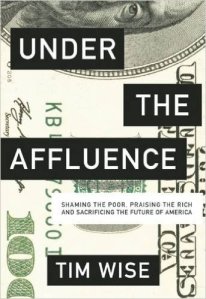For over 18 years, I have presented synopses of business books each month at the First Friday Book Synopsis. And, for about 12 years, I have presented synopses of books on social justice and poverty each month for the Urban Engagement Book Club, sponsored by CitySquare.
I remember back to my graduate school days at USC, to a conversation with a top-notch, nationally respected professor. I was really having trouble understanding what I was reading. The field was Rhetoric and Public Address. I was new to the discipline. He told me to just keep reading, and the understanding would follow in about 6 months of regular exposure.
He was right. It all made sense to me after I developed enough undergirding basic knowledge.
Well, the same has happened with my reading of business books, and books on social justice. These days, I read a business book, and I recognize themes, and “slots” to put insights into. I get the point far more quickly that I did in the beginning days of reading business books regularly. (I had always read a few such books, here and there, but this became a regular, always-reading-the-next-book discipline for our monthly event).
The same has happened with books on social justice. Though there are different insights, some new insights, some areas of agreement and disagreement with each book I read, when I now read a book on poverty or social justice I recognize themes, “slots” to put insights into.
And I have come to realize, after reading many such books, that there are some “these are so true we simply can’t ignore them” observations and insights that I’ve arrived at after reading a number of books in a discipline.
I expecially felt that as I read the book Under the Affluence: Shaming the Poor, Praising the Rich and Sacrificing the Future of  America by Tim Wise, the selection for today’s Urban Engagemnt Book Club.
America by Tim Wise, the selection for today’s Urban Engagemnt Book Club.
Here is how I answered “why is this book worth our time?”:
#1 – This book will help you grasp the divide between the rich and the poor – what we have come to call income inequality.
#2 – This book will help you grasp that the poor are poor not (just) because of sloth and lack of effort. There are true, societal wide causes of poverty
#3 – This book will help you develop a “thinking plan,” that can lead to an “action plan.”
The book begins with a quote from Plato:
Any city, however small, is in fact divided into two, one the city of the poor, the other of the rich; these are at war with one another.
And, though the book is filled with facts, statistics, findings, it is the author’s use of the word “Scroogism” that grabbed my attention. It is my first of five lessons and takeaways. Here they are:
#1 – Scroogism is a real thing. The rich get richer while oblivious to the reality of the less-than-rich; especially the poor. (“Scroogism” – “the rampant demonization of the poor and the valorization of the rich”).
• “Scroogism has been the norm for most of American history, interrupted by occasional bouts of compassionate reform, but never fully discarded.”
#2 – The ever-ongoing rise of affluence is coming at the expense of the less than rich. – “The expense of” means actual hardship and even harm.
#3 – Things will not get better by “you can believe in yourself and do better” speeches and sermons.
#4 – Things will get better by actual programs that provide greater help – safety nets, childcare, health care, among others.
#5 – But — and this is big – it all has to start with changing the narrative!
I have often made this simple recommendation: that you occasionally read a book about the struggles of the less-than-rich. Just to keep your heart of compassion healthy, your empathy growing, and maybe, so that you can help make a difference in society (and in the lives of real people). For such reasons, Under the Affluence would a be a good book to add to your reading stack.
